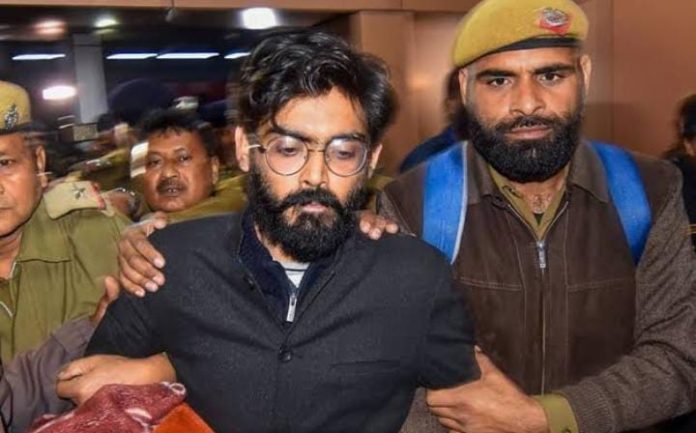– Zaina Aman
New Delhi, Jan. 29: Four years have passed since Sharjeel Imam’s imprisonment on January 28, 2020. During this time, he emerged as a trailblazer, notably disrupting the trend of systematically depoliticizing Muslims in India. The introduction of the CAA/NRC law, with the potential to render many Muslims stateless, prompted him and others to venture beyond academic realms and protest on the streets. Foreseeing the profound impact on both the symbolic identity of the Indian state and the marginalized Muslim community, they anticipated the law’s consequences. The CAA’s implementation not only involves constitutional changes but also signifies a transformation of India’s social contract, earned through Muslims’ significant sacrifices against British rule, into a symbolic Hindu state.
Educated at esteemed institutions like St. Xavier’s in Patna, Sharjeel Imam held BTech and MTech degrees from the Indian Institute of Technology in Bombay. Despite a lucrative job at a Danish bank with an annual salary exceeding 37 lakh Indian rupees, he opted for a shift to social sciences, particularly history, at Jawaharlal Nehru University. Excelling as a student, he challenged prevalent perspectives in Indian historiography dominated by leftist, liberal, and nationalist ideologies. In his MPhil thesis, Sharjeel advocated for Muslims to reclaim their history, encouraging independent thought and authorship.
His critical scrutiny extended across the ideological spectrum, targeting not only the Indian National Congress but also key figures from both the Left and the Right. This approach made him a controversial figure in academia and politics. Rather than facing passive indifference, Sharjeel encountered active hostility from all sides of the political spectrum.
Sharjeel Imam played a crucial role in initiating the Shaheen Bagh protests as well, emphasizing peace and order in his speeches. Despite his efforts and a month in prison, he was unfairly implicated as the “planner and intigator” behind the February 2020 Delhi riots, highlighting the absurdity of the charges. His association with the historical protest method of “chakka jam” has been distorted, portraying him as a disruptor, challenging simplistic categorizations.
Honoring Sharjeel Imam becomes essential as it serves to safeguard our collective memory and acknowledges the deliberate efforts by the ruling regime to foster forgetfulness about those on the frontlines. Preserving the legacy of individuals like Sharjeel is a vital step in resisting attempts to erase their contributions and narratives from public consciousness.
Thus, the imperative to free political prisoners is not merely a call for justice but a safeguarding of democratic principles. Their incarceration poses a threat to the very essence of open discourse and dissent crucial for a thriving democracy. By advocating for the release of political prisoners, we strive not only for their individual rights but also for the preservation of a society where diverse voices can freely express themselves without fear of reprisal. This endeavor is pivotal in upholding the principles of justice, protecting civil liberties, and fostering a society that cherishes the values of democracy and human rights.




